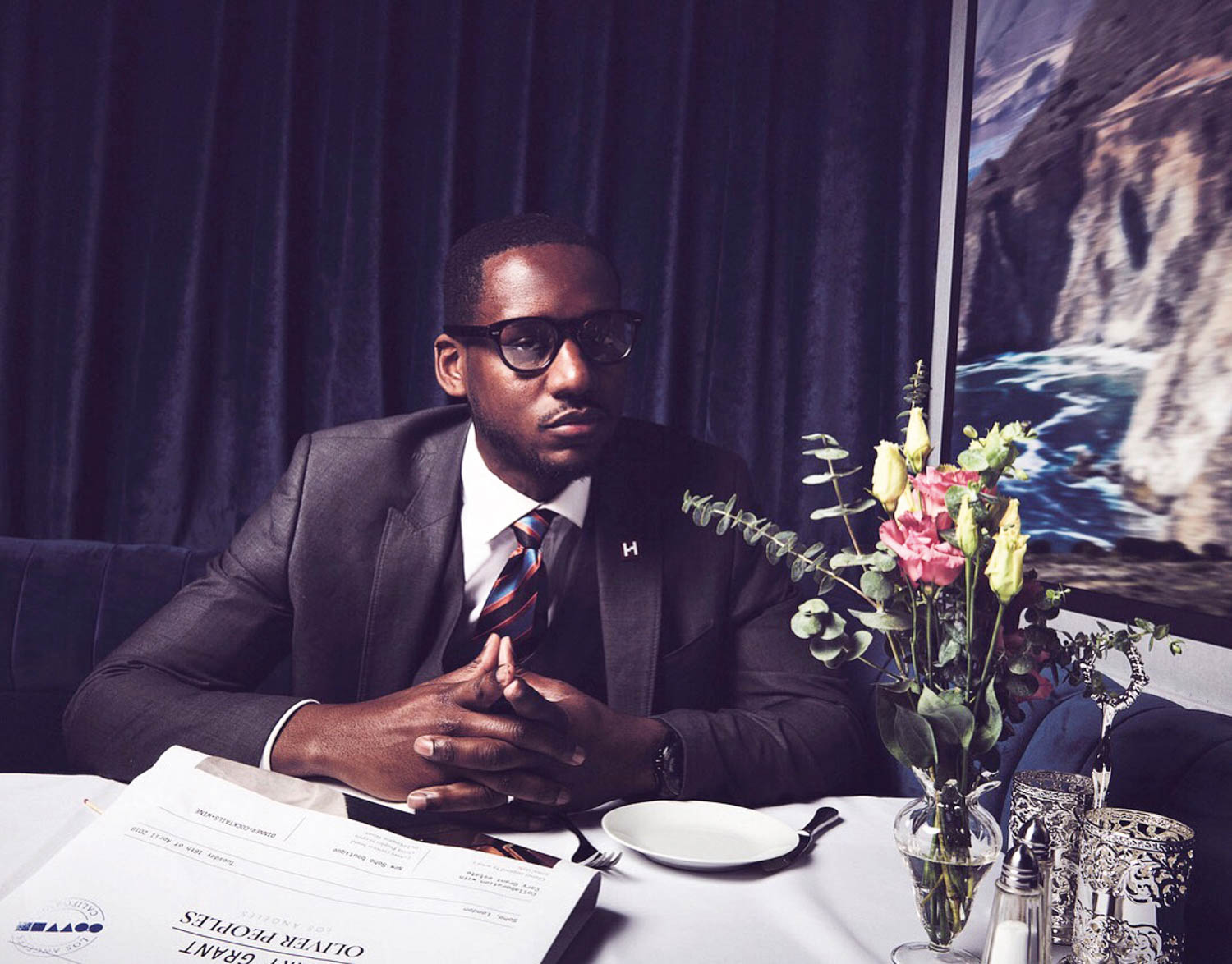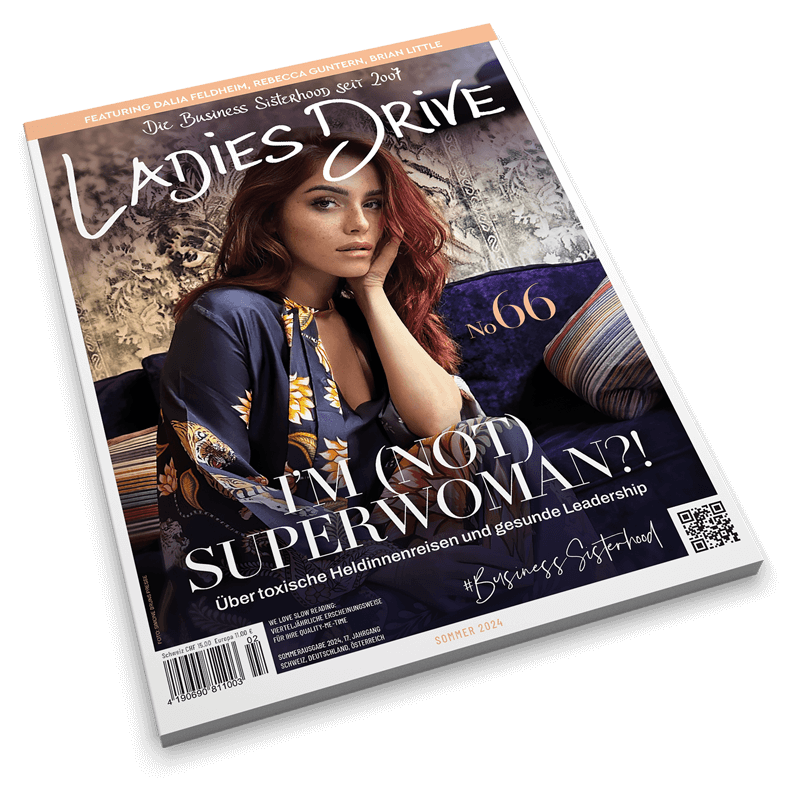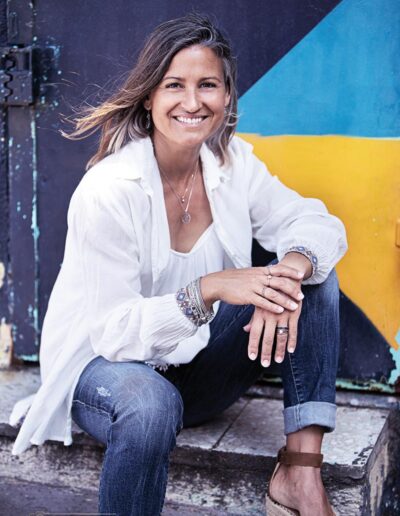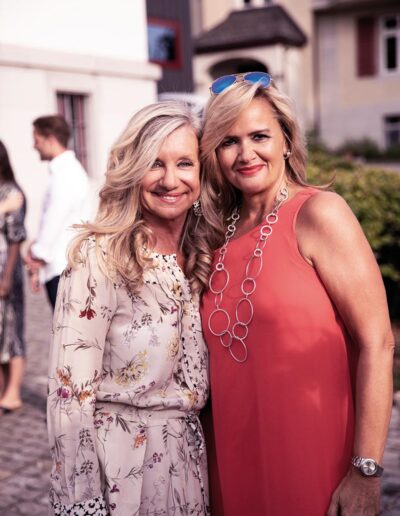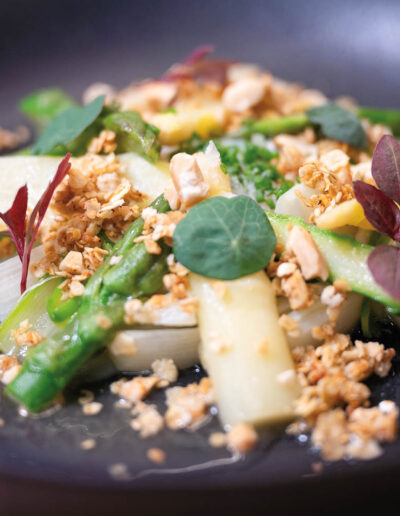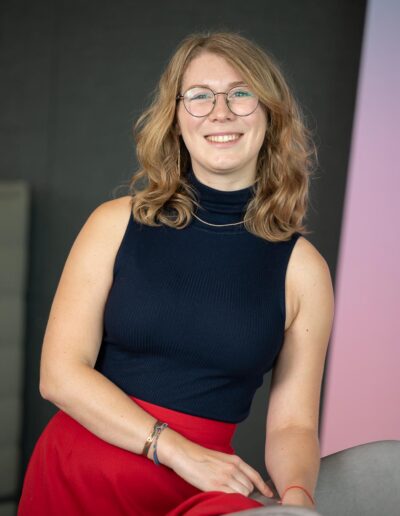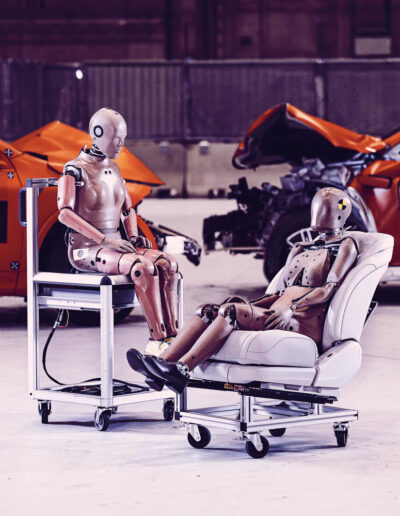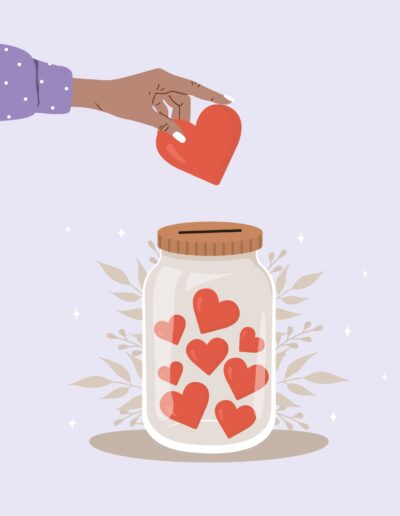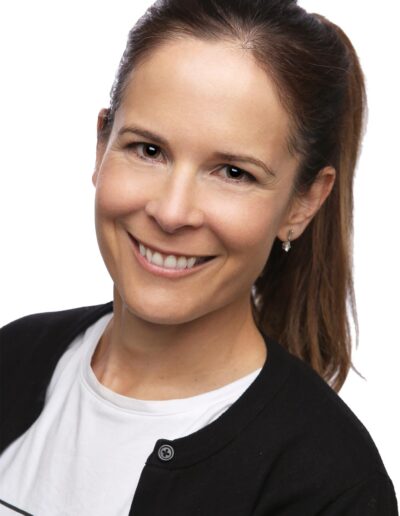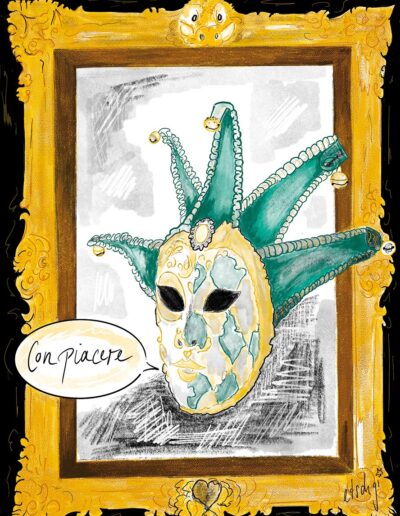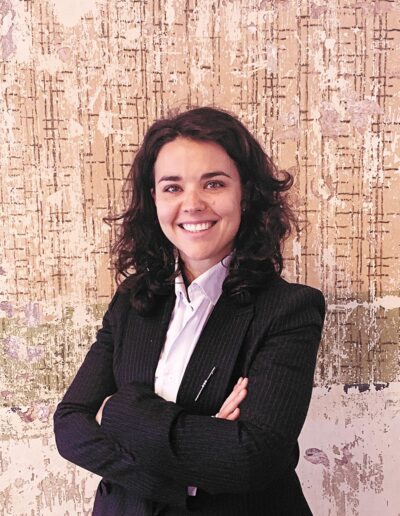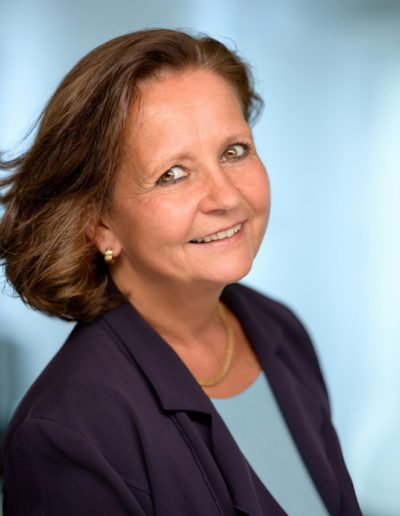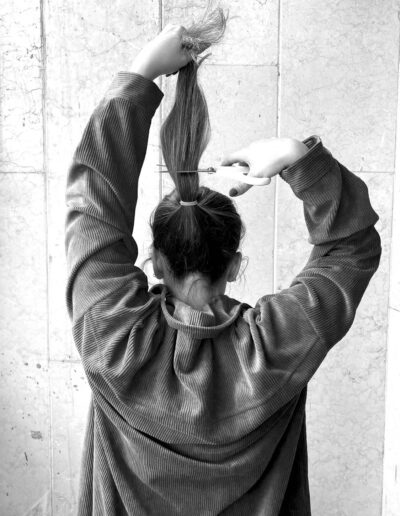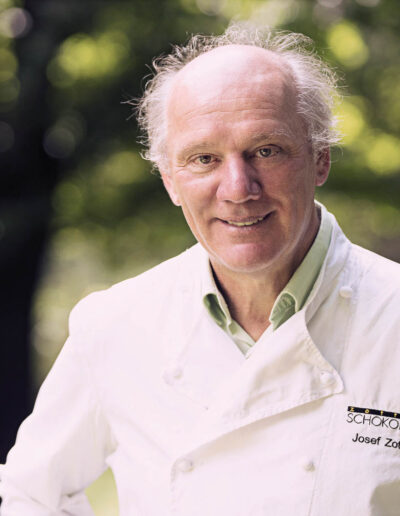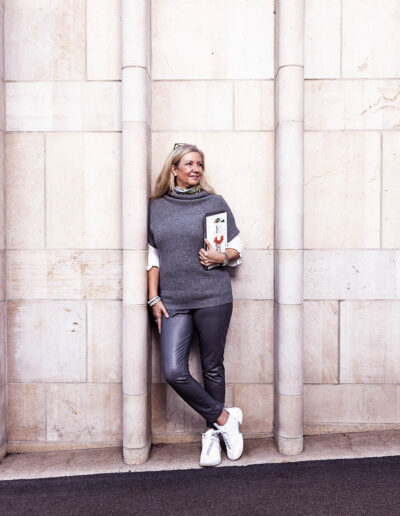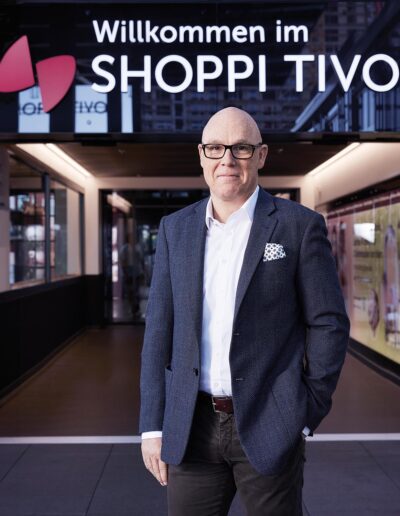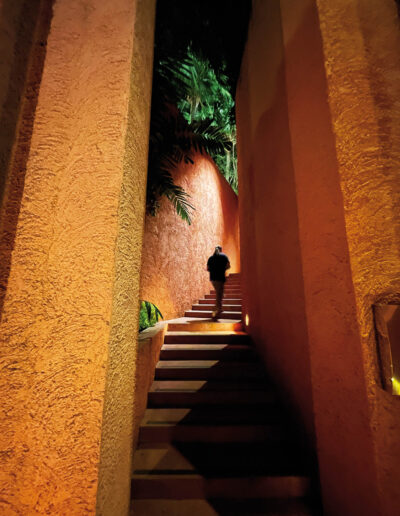After being a pro basketball player, having played nationally and internationally, he founded “Who’s Got Game sport”, a not for profit basketball organisation specialised in using sport as a tool for social change and development, creating young leaders. Additionally Dayo is co-chair of Equal Justice for NEXUS Global – a worldwide community founded to bridge communities of wealth, philanthropy and social entrepreneurship with over 5000 members from 70 countries. Their goal: to catalyse new leadership and accelerate needed political, societal, indigenous, financial, environmental and equal justice solutions.
Dayo is convinced that we desperately need new (political) leaders. More than ever.
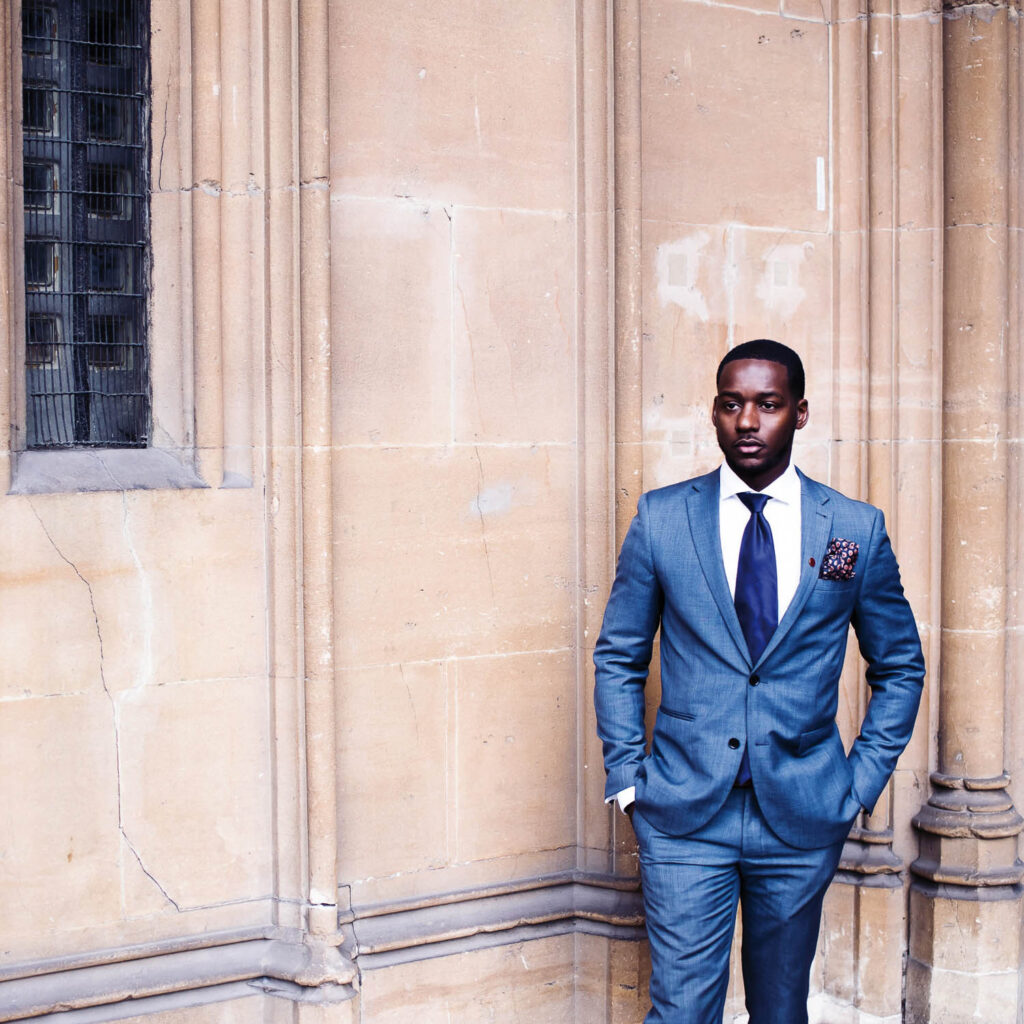
Ladies Drive Who was Dayo Okewale as a child, a teenager?
I was born in East London in a town which recently has been gentrified. So it’s very pretty and pristine now. 37 years ago, it wasn’t that place. You know, I lived a road away from an area called „Murder Mile“ because someone was killed every week. I was fortunate that I had loving parents who worked tirelessly. But they were always living in their own cocoon. And I was always curious about a life outside of this immediate environment. I was curious about changing this environment, the environment I’m in. Changing the people that I’m around. I was always asking questions. I was always boisterous. I was always the fiery friend. The one that always pushed the boundaries. That was me.
And what was the scent of your childhood days?
I love these questions. I think the scent was fun. I mean, you know, the scent was energy. It was positive. It was uplifting. You’re never going to be around me and not smell the scent of excitement. And there is this Nigerian dish called jollof rice. And so the scent of that rice is kind of fiery, smoky, kind of sultry, very sweet. It takes quite a while to prepare – a few hours. It really represented love. So if my Mom would ever make jollof rice, I’d know she’d be in a good mood!. When I smelt it, I’d recall warmth, love, strength and feel a sense of pure giving to the family.
You just shared where you were born and raised in East London…how did you make your way up to the House of Lords…?
School time was relatively easy. I went to a pretty good state school. I was quite gifted in that God gave me the ability to pick up things quite quickly and effortlessly.. So, I got good grades, but I’d hate studying. I got a bachelor’s degree in information systems, business information systems and a master’s in cultural intelligence. You know, coming from a West African background, your parents kind of want you to be a doctor, lawyer, a businessman, someone from a high profession. Business information systems was more looking at the strategy behind business, some of the drivers and pullers and motivators. And this was early tech, pre-AI industry. And the masters in cultural intelligence was mind-blowing – I mean: Emotional intelligence is of highest importance to me. And not a lot of people understand that and get it. But cultural intelligence gives you that empathetic awareness, where you can basically see the perspective of others, which I’ve always found interesting. And it’s always been a kind of key driver for me, a key helper for me. I know you haven’t asked this yet, but one of my mission statements in life is to be a voice for the voiceless. And so I always want to understand the motivations of others, the experiences of others, the perspective of others.
And what drives you…?
I’ve always wanted to serve. I think a quote I live by is “the greatest leader of them all should be the greatest servant of all.” And for some reason, I’ve just had this underlying passion to serve. It actually brings me gratification in serving someone, helping someone receive fulfillment or happiness makes me feel happy.
And what was your first job? I’m still curious to learn how you ended up working for the House of Lords…
My first job I had at 16 – and I definitely was serving people – because I worked at McDonald’s. I was serving French fries. I remember like it was yesterday. My salary was £4.19 an hour and I was serving so good in my first three months that they gave me 3p raise of £4.22 an hour, legendary.
But I was great at basketball, at 16 I played for the England national team and I was fortunate to go to a prestigious sports university via a basketball scholarship. I played basketball for the university’s varsity team and then after played basketball professionally around the world for a while. Basketball opened so many doors for me it gave me the opportunity to be part of a team, be part of a greater purpose. I learned so many life skills and lessons through basketball. The discipline, the hard work, delivering under pressure, you know, having a goal greater than your own, listening to authority. Basketball really, really gave me the tools and skills for life. So, I finished university, played basketball, Germany, Greece, the US for a while, came back to the UK and got a job in finance. I worked for an assurance company. Hated it. It was a better pay, but I hated it. And then I set up my foundation „Who’s Got Game Sport“ – it uses basketball as a tool for social change and development, creating young leaders. The foundation has really grown and to date has worked with over 70,000 young people. But sport is quite underfunded, particularly in the UK even though it’s a great medium for young people. So I began to lobby government on giving more money to sport. And I began my journey in politics fighting passionately for sport as a tool for education and skilling, I would lobby tireless. And began to write, I wrote a few papers on the topic of sport and education. I wrote a huge paper and submitted it to UNESCO, United Nations Education Scientific Organization. They really loved it, and saw the value in the piece and then invited me to an annual leadership forum for a hundred selected leaders around the world. I went there and must have impressed them quite heavily – I later joined the UN board and co-wrote a book for the European commission – a manual for education through sport.
The book went very well and received endless endorsements from dignitaries and senior officials, I then was invited to become a Commonwealth associate fellow and ambassador. And then, well…this is the story…are you ready for it? (smiles) So, my basketball foundation, we have quite a few corporate partners and some kind patrons and supporters. One of them was a Lord, one of the corporate partners, was a financial company, called KPMG and one of the partners is a big basketball fan. He’s more of a fanatic. He invited my organization to the Cayman Islands to support their community basketball pregame but also to join one of KOMG’s flagship events.
You have my attention…
So we started basketball camps in the Cayman. But during the camp, there was a summit called CAIS, which is the Cayman Alternative Investment Summit. And they invited us there as well to showcase some of our work with our young people. At that summit I met Lord Malloch Brown, who was one of the originators of the millennium development goals and Lord Hastings from the House of Lords. And so after the conference, this is at the Ritz-Carlton at the Cayman, we go to the beach, we’re having Pina Coladas, and we’re talking about stuff that’s happening in the world, politics and UK government.. As the curious person I am, I start throwing some opinions and options and saying, you know, this is what I believe would be beneficial and this is the voice of the people. They all looked at each other and then said, “we have this committee meeting in two weeks, could you come in?” – And I said, fine, sure. And so I get back to London. As mentioned I’m curious, but I’m also a preparer. So I prepare this kind of presentation pitch, basically pitch myself, going to this committee meeting. I must’ve done an amazing job because then they appointed me chief of staff for the House of Lords. So I worked with an array of crossbench independent peers and I ran Lord Hasting’s private office and then worked with around 200 independent lords and baronesses. And this is entailed looking after their house affairs, governance and committee and party responsibilities, quite a big role. So I recommend next time you’re at the Ritz Carlton in the Grand Cayman order some Pina Coladas and watch magic happen!

How did you feel when they offered you the job?
I felt great!! And deeply humbled, I live in this world of abyss where, for as long as I can remember, my steps have just been divinely ordered. And so I just welcome it. I learned how to play basketball at 15, 16, when the environment I was living around was entrenched in crime and negativity, sport for me was a tool and a way out. And I worked hard and was good enough, to obtain a scholarship. I went and I played professional basketball. So I’ve always just followed what feels right intuitively, what I believe is the right thing to do. So, when they offered it, it just felt like the right thing to do. At this point, I had no ambition to be in politics. I had no ambition to work in the political sphere. And it was very much learning on the job in that realm. But it felt right, God was with me and it was where I needed to be at that time. I’m a senior advisor in the House of Lords now working with a smaller cohort, around 30 Lords and Baronesses. It’s a similar role, I guess it just has more of a direct input into the business of the Chamber and more of a legislative angle.
So, did your ambitions grow?
Yes of course, I mean I think I’m always trying to push the envelope. But I’m working on a different project. Currently I’m looking at the next wave of integral, courageous leaders in politics, finance and the creative industry, and how we can create an ecosystem for these leaders. And hopefully we’ll have a better world. So that’s one thing I’m hugely passionate about. So yes,, my ambition, my curiosity, has always grown. And I think now, in the realms of being in one of the most powerful governments in the world, you get to see what’s possible, you really get to see what opportunities you have, and how you can make a difference and long lasting change. I take this challenge every day with joy and optimism.
You were speaking about a new generation of leaders in politics. I think that’s urgently and desperately needed at the time now. When we look into the world, I mean – I ask myself: What the heck is going wrong at the moment?
I mean, it’s this layered, right? And I guess for different climates, there’s different interpretations of what might be wrong. If you look at the African Continent – you have 90% of presidents over the age of 75. And the average term of a president or leader in the political realm is 30 plus, 35 years. Which is insane. And again, there’s so many wider issues of trade deals that precede them. And other arrangements that have conditioned how one may lead. So there’s that. I guess there is as well issues which are specific to other countries. When you look at the UK right now, within the time I’ve been in the House of Lords, we’ve had, I think, six prime ministers? And so I think it shows you the cry and desperation that nations have for real leadership. And there are a lot of issues which get lost in translation from society to the upper echelons of government. And it’s important that leaders carry the voice of the people and answer the cries of the people. And so, yeah, I’m very passionate about a long-term change in that. And I know it’s a longer game. But, yeah, I’m excited about that.
What are the qualities of these new leaders in politics that are needed, regarding to your personal opinion?
Integrity. Integrity is a huge one. You know, leaders that really stand on values, that are not corrupt, that honor their word, that are not swayed or persuaded by greed or other motivations. So integrity is a huge one. Courage, to be courageous, to go against the norm, to be innovative. We’re in a new world, we’re in a changing world. We need new methods, new fresh ideas. Something that’s empathetic. It seems like nowadays, leaders, especially political leaders, they have to be seen to be stern and harsh, to be in a position of authority. And that’s so backwards. So definitely empathy. And I think that there is just a need to be a servant, to be in the highest position of leadership in whatever country or context. You have to be able to serve the people you’re called to lead, I believe.
Do these people exist that you’re talking about? Are they already born?
(Smiles) They do. Some of the realities of life- particularly in the political environment is the context is hard. It’s not often these leaders get an opportunity to be seen or get an opportunity to rise to the top. And so there’s a lot of systemic and structural changes or adaptations that need to happen. Once you have the heart of the people, is there now a structure and system in place that will accept the people? And then once that’s in place: is there legislation, policies, laws that can now accept all of these new innovations and changes? And so there’s a full need to make changes and adaptions across the spectrum, a full redesign.
I totally see the urge of having such a redesign. One reason why people feel this huge uncertainty might be, that is is hard to tell who’s the bad guy and who’s the good guy…
I agree with you. Over the years there’s been a disposition to remove politicians from everyday people. So there’s this kind of gap in how you connect and relate to people. And then also, over the years, everything has become party politics. The trust in government and trust in leaders is dwindled. I guess one of the comforts is, on the House of Lords side anyway, this is not an elected position. It’s appointed by the King and the King’s Committee. And everyone is there based on their contribution to society, whether through business or life service or some form of discipline. One of the most recent things that has happened is: the rejection of the latest immigration bill, which, long story short, it will give UK the power to deport any migrant to Rwanda, with wide spread human rights failings. I mean, it’s the most ridiculous bill. But anyway, it passed in the House of Commons and we rejected it in the House of Lords. And so there is, you know, some comfort knowing, that there are some good people fighting the good fight. And they may not always get the limelight or the shine that they deserve, but they do exist.
Let’s talk a little bit about the kindness economy, how does that term resonate with you?
I don’t know if there is such. Because usually you hear those words in two different contrasts, right? And I guess when I think about kindness, I think about giving. I think about selflessness, I think about just servitude. And when I think about economy, I think about getting, I think about a fast pace. I’m convoluted because I feel the two don’t seldom mix naturally. But I do feel if ever there was an economy I want to be in, it would be the kindness economy. And I definitely feel it’s something which we just need in this world. Not for any reason at all, but to honor those who need it.
How could we create such a kind world where we have kind politicians?
I think we just need to demonstrate kindness every day at every opportunity. There’s a quote: not a lot of us will be able to do many things or great things, but we all can do small things with great kindness and love. And I think every day, every moment, we have an opportunity to be kind to someone and to do it. And I think our economy can be created this way.
I am a firm believer of not everything you do now, you get to see the fruit of it straight away. And every action, every seed, every deposit of kindness, it definitely has a reward, a reap. And even if you don’t see it all, it definitely has, I believe that.
Absolutely. One last question. What was the kindest thing that someone did to you that you can recall?
There’s a few. Giving me a job in the House of Lords was a very kind thing to do (and the right thing I may add!). They really saw something and believed in it and gave into that, which was fantastic. I’ve been fortunate enough to receive gifts. I had a really tough year, 2022. I lost one of my best friends to colon cancer. And a tragic family bereavement.
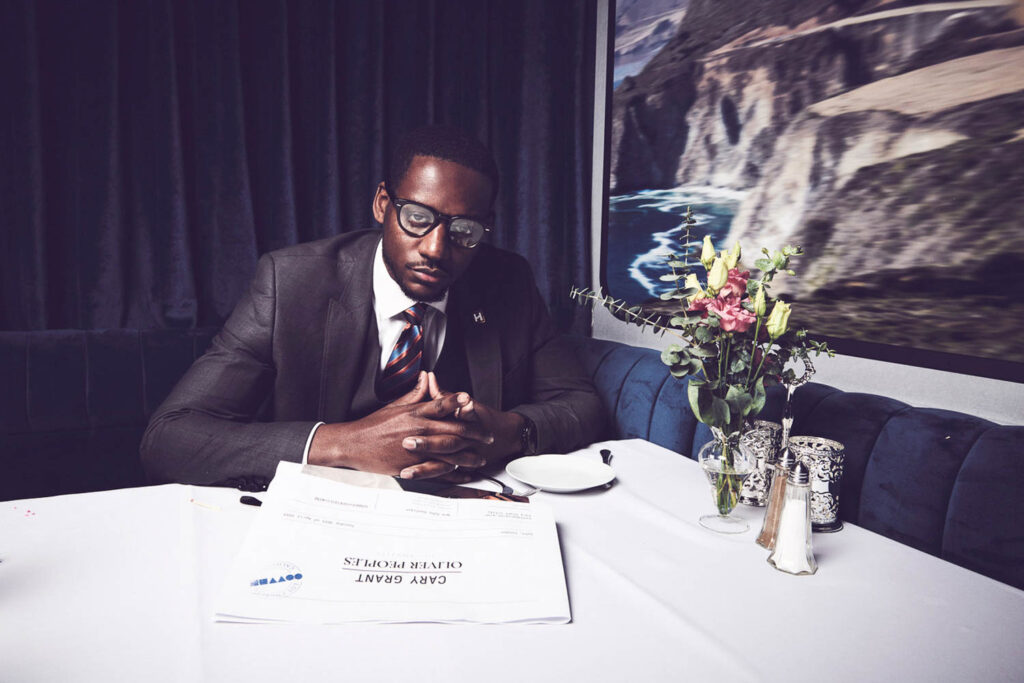
Oh, I’m so sorry to hear that.
It was a nightmare. Even until today, I’m still dealing with these things through therapy and other means. But one of my friends, who saw I was in a bad way, flew me to Miami and just spent time with me for two weeks. Took care of everything. I didn’t have to worry about anything. But just that act of selflessness meant the world to me,, just to want to be there for me, do something kind, and just put me in a different environment, it really meant a lot. It was really special to me.
I really hope that when we’ll speak 5 or 10 years from now, we will live in a world that is much more kind than it is today.
I think gradually, we have to continue pushing that envelope and continue pushing this narrative because you know, these things take time. For this to be a reality in five years, every day now, we need to illuminate someone to this world of kindness.
The premise to a world filled with more kindness is that we need to learn that life, business, is not always tit for tat.
How I see it, the kindness economy is not one of reciprocity. Not in the purest sense. But it is one of constant giving. And that’s it. And I believe that. I think within that, all that we need fulfilled will be fulfilled. And within that, all that we need will be given to us.
Read more:

